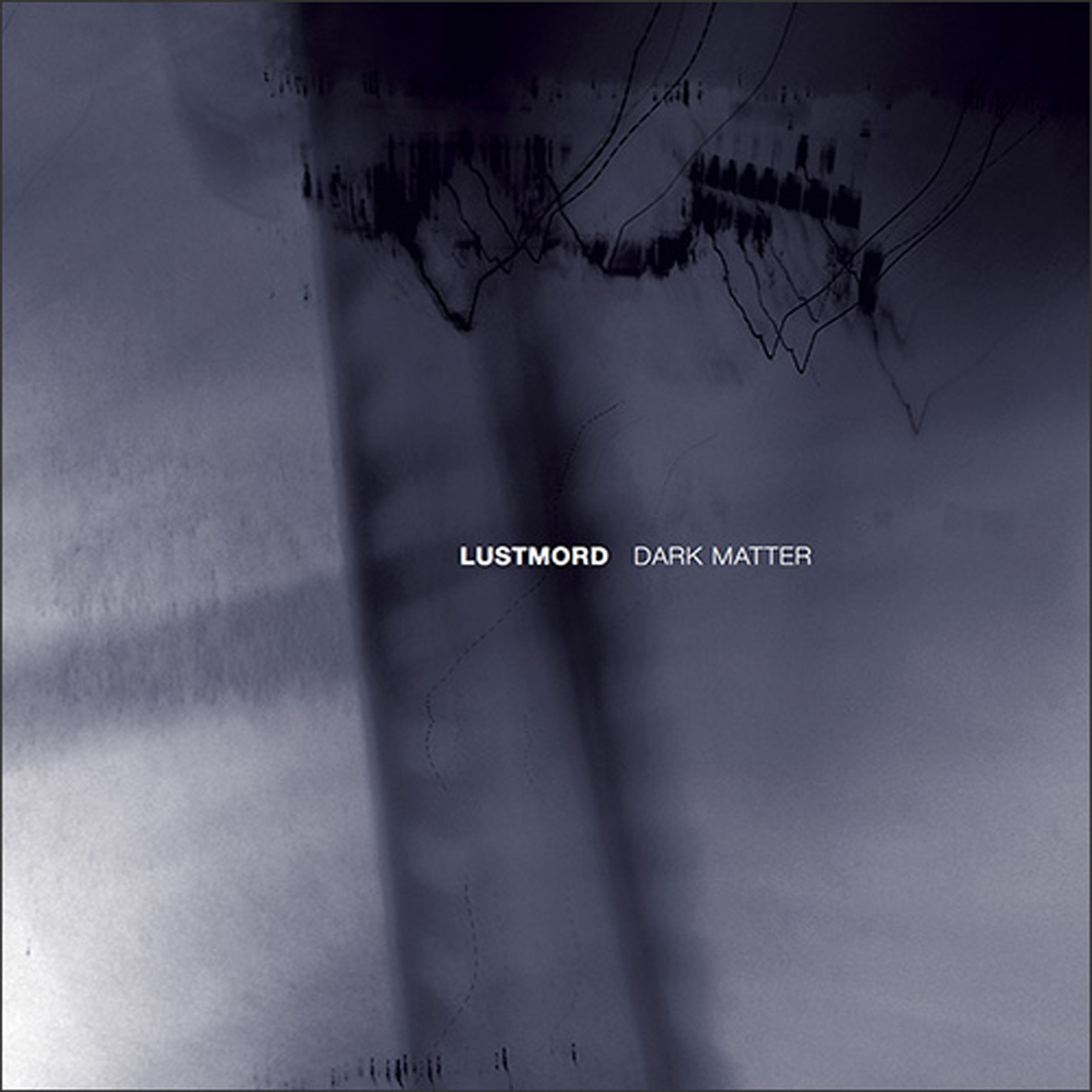Lustmord, "Dark Matter"
 Brian Lustmord's latest opus, allegedly first begun 15 years ago, attempts to evoke the immense void and mystery of space using a host of cosmological recordings from NASA and others as his source material.  There are a number of serious hurdles standing in the way of that ambitious and quixotic objective, sadly, but Dark Matter boasts enough flashes of inspiration to make it an interesting and valiant struggle.  Though serious Lustmord fans will probably be delighted to hear Brian revisiting similar territory to his classic The Place Where the Black Stars Hang album, his epic vision is hobbled a bit by the limitations of the format.
Brian Lustmord's latest opus, allegedly first begun 15 years ago, attempts to evoke the immense void and mystery of space using a host of cosmological recordings from NASA and others as his source material.  There are a number of serious hurdles standing in the way of that ambitious and quixotic objective, sadly, but Dark Matter boasts enough flashes of inspiration to make it an interesting and valiant struggle.  Though serious Lustmord fans will probably be delighted to hear Brian revisiting similar territory to his classic The Place Where the Black Stars Hang album, his epic vision is hobbled a bit by the limitations of the format.
Touch
Dark Matter opens with its strongest and lengthiest piece, the 27-minute "Subspace," which is centered around a wonderfully eerie, distant, and forlorn-sounding two-note melody.  While that "hook" is the most important part of the piece for me, such touches are quite peripheral to Lustmord’s central vision here: Dark Matter is primarily an album of deep throbbing drones, cavernous rumbles, ominous whooshes, volcanic bubbling, and distant crackling.  Therein lies the root of my issues with the album, as Lustmord is first and foremost a brilliant and exacting technician fixated on mood and texture, while his interest in being a composer is clearly of secondary concern.  To his credit, a lack of attention to melody and harmony makes perfect sense thematically, as space is ostensibly a soundless void.  Veracity and thematic purity do not always make for a great listening experience though.  On this particular piece, however, Brian strikes an excellent balance between composition and sound design: "Subspace" gradually becomes subsumed by drifting emptiness and mysterious crackles before a second strong theme emerges from the lonely void in the form of something that sounds like a whale song.  It is a genuinely satisfying arc.  That balance is the exception rather than the rule, however: if the entire album stuck with that precarious and unpredictable ebb and flow between form and formlessness, I would probably like it a lot more than I do.
Aside from "Subspace," Dark Matter often sounds like it is on dark ambient autopilot.  Each piece ultimately boasts a showstopping set piece, but there are a lot of lengthy, frustrating lulls between flashes of actual greatness.  For example, "Astronomicon" has a wonderfully haunting final motif, but it takes about 15 minutes to get there.  Of course, Brian was not actually on autopilot for this album and that is where things get thorny.  Part of the problem is that Lustmord (much to his chagrin) was one of the primary architects of the dark ambient genre, influencing a host of other artists in the '90s.  The resulting glut of lesser, yet very similar, music necessarily made Lustmord feel a lot less special.  As a long career in film and videogame and sound design can attest, Brian is head and shoulders above most of his peers in the actual mechanics of his craft–unfortunately, however, an amorphous flow of subterranean rumbles, deep throbs, crackles, buried howls, and whooshes in the hands of a dilettante sounds a hell of a lot like the same thing done by a master on most stereos.  Without anything resembling melody or rhythm, the only obvious differences between similar artists in that milieu are largely technical and conceptual.
Naturally, Brian is well aware of his predicament and has noted in the past that his rare live performances are partly done just so people can hear how Lustmord is actually supposed to sound.  Consequently, Dark Matter is fundamentally a bit an indulgent and insular release, existing almost as a site-specific work designed solely to be experienced on Brian’s own amazing home stereo system, as he has observed that very few people will be able to properly experience its visceral and seismic low frequencies.  Another problem is that sonically trying to evoke the bleak immensity of space is inherently futile (space's sounds are generally at wavelengths that we cannot hear) and conveying infinity in an absorbing way is also no picnic.  Trying to hold my attention for 70 minutes with hollow whooshes, clanging metal, cavernous gurgling, and muted roars is a similarly unpromising endeavor, so it takes a lot of patience, attention, and volume to fully appreciate Dark Matter's secrets.  Having to wait a quarter of an hour for both "Astronomicon" and "Black Static" to fully evolve into something remarkable is far from optimal, but both are great once they finally catch fire.
The more I listen to Dark Matter, the more I find myself conflicted about it.  The only things that I am certain of are 1.) an enormous amount of work went into it, and 2.) an album is hopelessly inadequate for conveying the full majesty of Lustmord's vision.  I wanted to love Dark Matter and I lamentably do not, but the reasons for my vague sense of unfulfillment were initially hard to nail down.  At first, I thought this was a significant regression from the crazily ambitious and divergent The Word as Power and that Brian’s day job has begun to bleed a bit too much into his art (at normal volume, Dark Matter would provide a perfect atmosphere for a dark sci-fi game or film). Those assessments are not entirely off the mark compositionally, as Dark Matter definitely retreats to Lustmord's longtime comfort zone, but it is equally true that this album may very well be Brian’s magnum opus, albeit with some asterisks.  I am not going to say that Brian was too ambitious, but I do believe that his intent here far outstretched the capabilities of the medium: Dark Matter is an album that begs to be experienced on a grand scale (like an earthquake) rather than just heard.  As such, it is a bit underwhelming and easy to ignore for long stretches in its current form, but it is not hard to imagine these three pieces feeling like the voice of God if they were experienced at apocalyptic volume in the right context.
 
 



